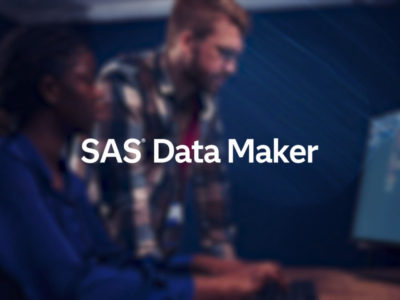In an age where data is the lifeblood of industries, Nigeria stands at a crossroads. With its burgeoning economy and vibrant industries spanning energy, agriculture, logistics, and healthcare, the nation generates vast amounts of data daily. Yet, much of this data lies untapped, fragmented, or poorly managed creating what can be aptly described as “data chaos.” This chaos stifles decision-making, hampers growth, and leaves potential opportunities unexplored. But there is hope: through Artificial Intelligence (AI), Natural Language Processing (NLP), and Smart Analytics, we can transform this disorder into clarity, empowering industries to thrive in the global digital economy.
The Challenges of Data Chaos in Nigerian Industries
Nigeria’s industries face unique challenges in managing data effectively. In logistics, inefficiencies in routing and resource allocation are common. The energy sector struggles with unreliable forecasts and underutilized infrastructure. Agriculture faces hurdles in supply chain optimization, while healthcare grapples with incomplete patient records and mismanagement of medical supplies.
Compounding these issues are the diversity of languages and dialects, the predominance of unstructured data, and the absence of a robust data governance framework. Many organizations operate without a centralized data repository, making it nearly impossible to draw actionable insights or implement data-driven solutions.
Transformative Potential of AI, NLP, and Smart Analytics
The advent of AI, NLP, and Smart Analytics offers unparalleled opportunities to address these challenges:
- Artificial Intelligence for Decision-Making: AI-powered systems can sift through vast datasets, identifying trends and anomalies that might elude human analysts. For example, predictive maintenance in Nigeria’s logistics sector could minimize downtime, saving millions in operational costs. Similarly, AI algorithms can optimize power distribution in the energy sector, reducing waste and improving reliability.
- Natural Language Processing for Inclusivity: With over 500 languages spoken in Nigeria, NLP can bridge the communication gap by processing unstructured text data—emails, social media content, and customer feedback—into actionable insights. Localized NLP models can help businesses cater to diverse populations, improving customer satisfaction and market penetration.
- Smart Analytics for Strategic Insights: Smart Analytics tools like dashboards and data visualization platforms make complex data more digestible. In agriculture, for instance, analytics can help farmers track weather patterns and market prices, enabling better planning and risk management.
Case Studies: Success Through Smart Technologies
- Logistics: Companies adopting AI-driven route optimization have cut transportation costs by up to 20%, while NLP tools have streamlined customer service by analyzing feedback in real time.
- Healthcare: Predictive models for inventory management have reduced wastage of critical medical supplies by 30%, and data harmonization efforts have improved patient outcomes across hospitals.
- Energy: Machine learning algorithms have boosted the efficiency of renewable energy projects, aligning Nigeria with its sustainability goals.
Recommendations for Nigeria’s Data Revolution
To fully unlock the potential of AI, NLP, and Smart Analytics, Nigeria must prioritize several initiatives:
- Data Governance Frameworks: Establishing robust policies to standardize data collection, storage, and sharing across industries.
- Investment in Infrastructure: Providing access to cloud-based platforms and high-speed internet to support data-driven projects.
- Capacity Building: Training professionals in data science, AI, and analytics to build a skilled workforce.
- Collaborative Ecosystems: Encouraging partnerships between tech startups, government, and academia to foster innovation and scalability.
Conclusion
As Nigeria’s industries move from data chaos to clarity, the strategic adoption of AI, NLP, and Smart Analytics will redefine the nation’s economic landscape. These technologies are more than tools; they are enablers of innovation, efficiency, and inclusivity.
Authored by Emmanuel A. Ikekwere
Cold Chain Operations Co-op at Johnson & Johnson.
Data Scientist and Supply Chain Analyst passionate about leveraging data to solve complex challenges and drive actionable insights.





























